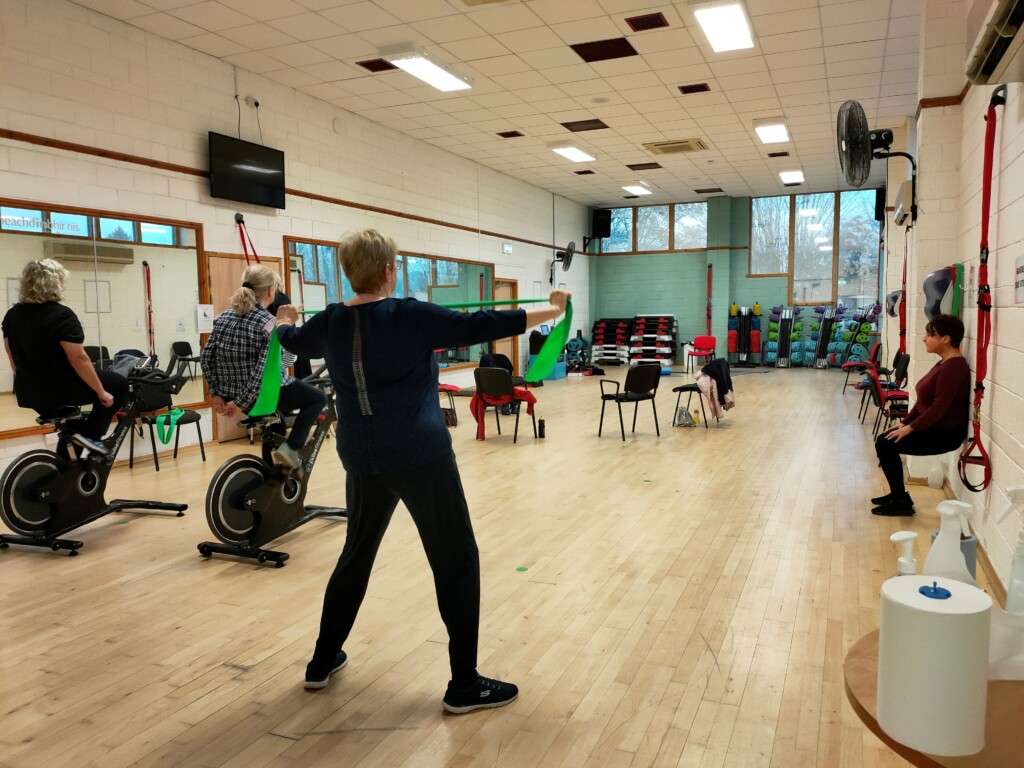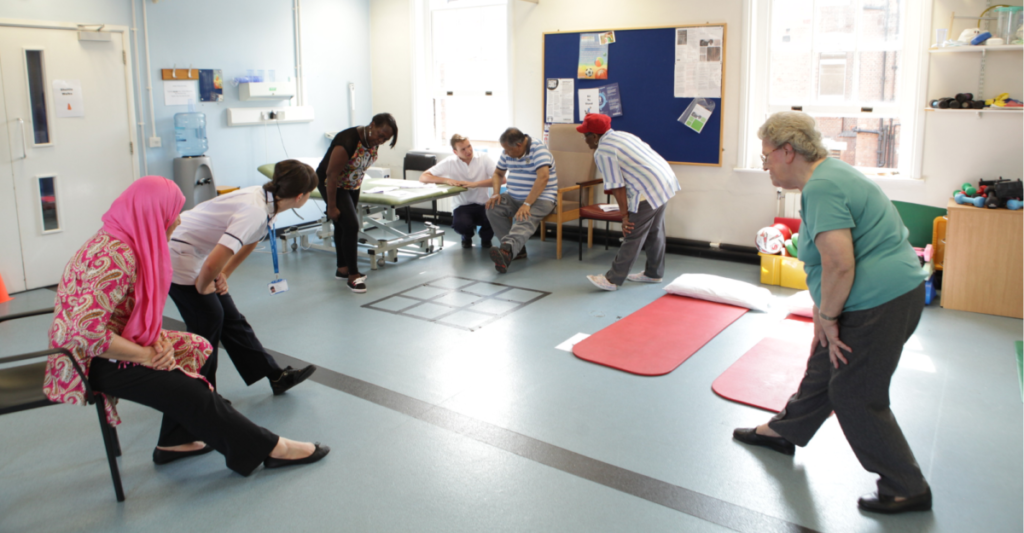ESCAPE-pain
Interview with Professor Mike Hurley, founder of ESCAPE-pain
Professor Mike Hurley reflects on two years of the ESCAPE-pain programme partnering with Orthopaedic Research UK. Standing for Enabling Self-management and Coping with Arthritic Pain using Exercise, the award-winning group rehabilitation programme was developed by Prof. Hurley at St George’s University of London and Kingston University for people with knee osteoarthritis and chronic joint pain. ESCAPE-pain has been supported by Sport England, Versus Arthritis, the NHS Innovation Accelerator (NIA), the Academic Health Science Network (AHSN), Good Boost, ukactive and UK Research and Innovation (UKRI). ESCAPE-pain programmes are now delivered in hundreds of locations across the UK for those with chronic knee, hip, or back pain. The programmes can be delivered in clinical settings as well as community and leisure centres.
Prof. Hurley also provides insights on the challenges and adaptations the programme faced during COVID-19 lockdowns, as well as his long-term goals for the initiative.
Empowering individuals to manage their conditions
ESCAPE-pain’s programmes empower individuals to manage their conditions through group exercise classes and to challenge preconceptions about the manageability of their condition.
Prof Hurley said, “The message that you get from the media, I think sometimes it’s a bit lazy and negative – that an operation is the only option but that waiting lists are so long that you might wait years.’” He continued, “We have to get positive messages in the media that there are alternatives out there. Even if you’re waiting for an operation, exercise will at least make you more comfortable. And when you have your operation, you’re likely to be a little bit fitter.”
“I think the health services have got to get out of this silo thinking that it’s all about just physio and drugs and surgery contained within hospitals and encourage people to get up and find out how they can start to help themselves.”
“There’s a great social aspect to it [ESCAPE-pain],” asserted Hurley.” “If we can continue to grow the ESCAPE-pain programme within the community and show the benefits are much broader than just simply getting rid of pain – that it can in some circumstances replace the immediate need for surgery – we can make a huge difference to the lives of thousands of people.”
Online operations
As lockdowns ended in 2021, ESCAPE-pain was able to re-establish and expand its offering of programmes with the ORUK partnership. “We really started to feel that we could settle into ORUK and find our stride and things started to get going from there.” He continued, “During the past 18 months, things have developed well. We’ve managed to re-establish ESCAPE-pain in lots of the places that were running it before the pandemic and lots of new places.”

Situating the programme in community settings has helped raise awareness of its benefits. Some community centres have created informal videos about ESCAPE-pain and displayed these in their centres, which has helped the programme gain participants and commissioners. “There’s a huge demand out there in people’s local population, and the community centres saying, ‘Actually we can really do something positive in their lives that will help them.’”
Changes for the better
“A big step for us would be to get to over 300 sites to really start to get the UKRI project going where ESCAPE-pain becomes embedded in that offer of musculoskeletal interventions for people in the community setting,” said Hurley.
“The NHS have said for many years, even before the pandemic, that they wanted to shift things out of hospital…Now, certainly with MSK health the problem is so big and so unmanageable by the NHS that they simply have to say, ‘how else can we do this thing?’” According to Prof Hurley, that’s when the ESCAPE-pain, in collaboration with Good Boost, UKRI and ukactive, can step in by delivering the programme in community settings. “Now there’s the new NHS Long-term plan and a big push to get MSK care into communities.
“You can plan for years and years and years: change in a system, change in a process, and people buy into it, but it never quite gets there.”
“I think the pandemic, again, scary as it was in the start, has actually forced people to really reassess how they can make this change happen.” Hurley is optimistic for ESCAPE-pain’s future. “It could potentially be huge over the next 5-10 years,” he concluded.
If we can start to deliver it in the community and show its benefits are much broader than just simply getting rid of pain – that it can in some circumstances replace the immediate need for surgery, we can make a huge difference to the lives of thousands of people.

Professor Mike Hurley
ESCAPE-pain founder
